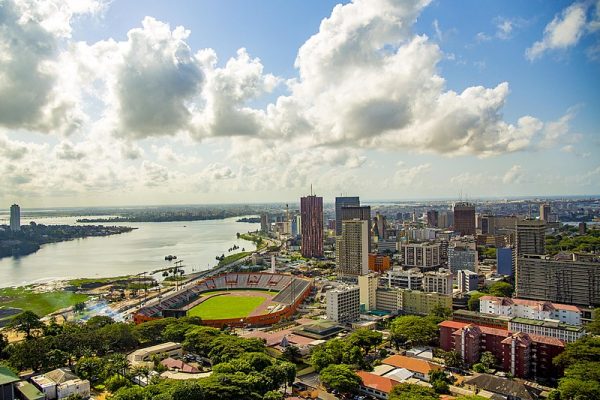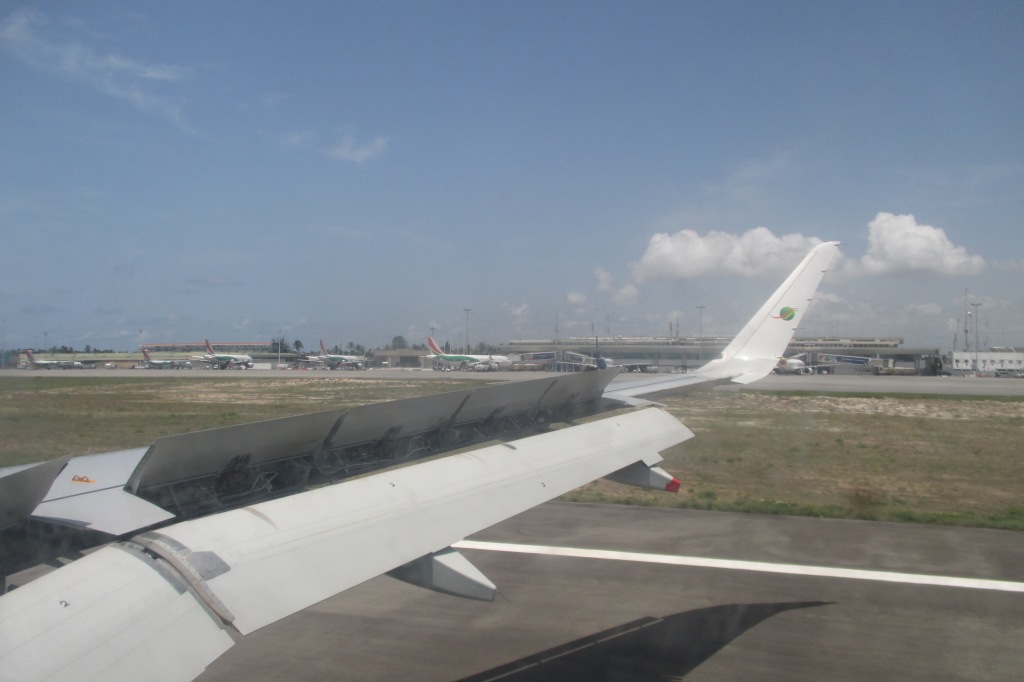One of my good journalist friends here had a right old chuckle when I told him about Mr No Office. “You were absolutely right. You’ve avoided a disaster there. He would have run off with the money and you’d have zero recourse. But yep – they dress to the nines and are very convincing actors…it’s all part of their game.” He went on to explain that because of the massive numbers of people wanting to come here, there is an incredible housing crisis, a colossal building spree and prices are out of control. People don’t just arrive from all corners of this country – where Abidjan has Mythical Status – but also from its crisis-ridden neighbours to the north: Mali and Burkina Faso, currently saddled with terrorist insurgencies and violently intolerant and inept military juntas. Indeed, the entire West African region from Senegal to Nigeria by way of Guinea and Liberia comes into Abidjan, likes it and stays – often in the less affluent sections of neighbourhoods like Abobo, Adjamé, Williamsville, Yopougon or the giant sprawl at Port Bouët, behind the airport. When the recklessly overzealous governor of the Abidjan District recently knocked down hundreds of homes in Yopougon, the spokeswoman for the people he had made homeless had this surname: Ouédraogo. You don’t get more Burkinabè than that…
So sadly, this really is the Wild West. Witness, for an example, the rather frighteningly frequent building collapses, always new buildings and often not even finished. Yes, you must present your work sheet to the relevant authorities but once you have obtained your building permit, legally or otherwise, you can do whatever you want. And that includes cutting corners. Or building over underground water reservoirs. Where Abidjan now stands used to be dense tropical rainforest. Some of it still exists, as do the groundwater bodies that used to feed the trees… Building on top of those involves extreme risks. Nobody cares. In short, then, there is an astonishing number of people involved in the housing business, from building to distribution. There’s hardly any regulation, which explains the dizzying number of agencies, be they bona fide operators, conmen or outright criminals. “This is encouraged at the highest level,” my friend ended his tour d’horizon. “Of course, politicians and bureaucrats and high-ranking military are in up to their necks in this business. They are the ones cashing in. They don’t want to regulate anything!”

Yes it’s pretty but there’s more to this city than just the façade. Much more.
By now, the hotel staff is getting interested in my case. One of them tells me that she knows someone who lives in a building where two apartments have been empty for quite some time. Off we go again, to an area not that far from that not-so-very-nice apartment I had rejected earlier.
It took me a while to locate it while walking and talking on the phone: yes…at this petrol station (on a very busy four-lane road, a bit like the one I used to live next to in Dakar)…right, so now I need to find a sandy little street going steeply up (DO NOT go past the pharmacie, you’ll have missed it)…got it…good…can you see a building marked [insert name] on your left? Now take the next street to your right…by the time I had reached the building following my host’s instructions I had run out of phone credit. And breath.
The building had a really nice vibe to it. Even the moody concierge warmed to me when I told him I had been to the northern Ivorian city where he came from.
“I live on the fourth floor,” my host told me cheerfully, as her three-years-old daughter stamped her feet on every step of the staircase, turning her head to make sure that everybody was watching and appreciated how good she had become at negotiating this monster. My place was on the second floor of this large complex, built around an inner courtyard. “We do all sorts of things here,” my perhaps future neighbour went on to explain. “We gather in the evening and sit on the roof.” A community of people having rooftop gatherings and probably parties? Niiiiice….. If the environment was pleasant enough I was prepared to compromise on the quality of my own place (at €305 a month), provided a few repairs were made. That, the concierge assured me, would be done.
So off I went the next day to an office that turned out to be attached to the Ministry of Justice. I was ushered into a tiny room kept at a temperature reserved for soft drinks. There was an old style wooden window that gave on to an office, out of which came a very nice bespectacled elderly lady with a form that I had to fill in in order to qualify for the roof top parties…I mean the apartment.
It all looked very official. I filled in the form, including the mandatory and recently acquired local telephone number (phew!!!). But I sensed other snags ahead. I had to fill in something relating to the date of the incorporation of my business. Er…..1992? Where? Netherlands? Mozambique, where I did my first reporting?

Would I, at long last, land? Not so fast…
If you are in what is nominally francophone west Africa and you hear the phrase “Il y a un petit problème” it means that the proverbial excrement is about to hit the fan.
I needed a physical address for my one-man enterprise, the very nice lady said, once she had re-emerged from the office where she had gone with my completed form. I understood that the entire establishment where my soon-(not?)-to-be apartment was located was indeed run by the state and that the conviviality was almost certainly due to the fact that everybody living there worked for the same employer. Anyway, my physical address…that would be the one where I will be living once I have the keys to this apartment, right?
Wrong. We need a physical address now. Well I am staying at an hotel if that’s any help, while looking for a place to install myself and business. Not going to work. “So, this is a classic Catch-22, right?” I think she understood the reference. As I walked out I felt angry and dejected for the first and only time. So near and yet so far!
Tags: Mali, Abidjan, Burkina Faso, Yopougon, house-hunting